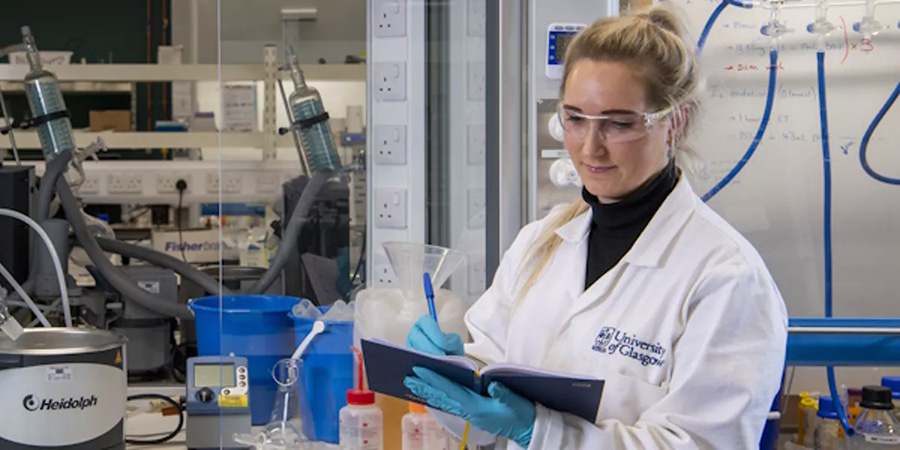Our research

Museums in the Metaverse
We're putting museums in the Metaverse so barriers become a thing of the past.

Chip-free wireless sensors could reduce environmental impact of electronic tags
A more sustainable new form of electronic tag could help reduce the vast environmental impact caused by single-use RFID technologies, researchers say.

Brain health in contact sports
We're identifying links between rugby and brain health to improve safety measures for players.

Training AI to detect cancer
We're teaching AI the language of cancer so we can better predict patient outcomes.

Net zero cities
We're planning net-zero cities so sustainable living is made possible.


Dismantling menopause stigma
We're dismantling the menopause stigma so everyone feels empowered at work.

Beniba Centre for Slavery Studies
In 2018, we embarked on a groundbreaking journey of self-reflection publishing our Slavery, Abolition and the University of Glasgow report.

Research breakthrough for 6G communications networks
A breakthrough development in wireless communication technology could help deliver the ultra-fast and software-controlled 6G networks of the future.

Research blasts off towards future space factory development
Researchers from the James Watt School of Engineering have taken a step towards a future where orbital factories can 3D print future tech in space.

Re-framing the picture: Gender equity policy in the film industries
A new report unveils groundbreaking insights into gender equity policy in the film industries.

The Lancet Diabetes & Endocrinology
A global Commission aims to settle the ongoing dispute of obesity as a disease and presents a novel, nuanced approach to diagnose obesity.

New study to understand the relationship between ADHD and suicide risk
ADHD UK is delighted to announce a new research partnership with the University of Glasgow to explore the relationship between ADHD and suicide risk.

Marine fish are responding to climate change by relocating towards the poles
The majority of fish populations in the sea are responding to global warming by relocating towards colder waters nearer the north and south poles.

Overtourism in Europe
Dr Colom-Montero’s research focuses on social and cultural responses to overtourism.
